https://www.youtube.com/watch?v=6MzWCrVY-vw
Exploring the Evolving FAA Regulations for BVLOS Drone Ops _ NestGen Xpress
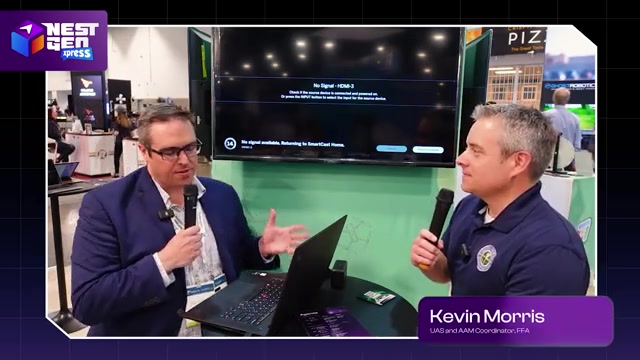
Welcome , welcome everyone .
Um Everyone here in the exhibit , all of you .
If you're here and you'd like to hear a fascinating FAA interview , please head on over here to booth 3909 flight .
Now Express , we are , we are here Express .
We're here with Kevin Morris .
He is the FAA drone guy and that's just really fun because we don't get to talk to the FAA that often .
That's not true .
We get to talk to them all the time .
They are so involved in what we're doing and I'm just honored to be here to ask some questions and be here live with you guys here .
This is going to be a lot of fun .
So if you're ready to get going , let's do this .
Hey , let's do this for a day one of exponential .
I'm more than happy .
This is going to be a great conversation .
This is going to be a good time .
All right , let's see .
Let's get this going .
Let's see .
I got a couple of good questions .
Ok .
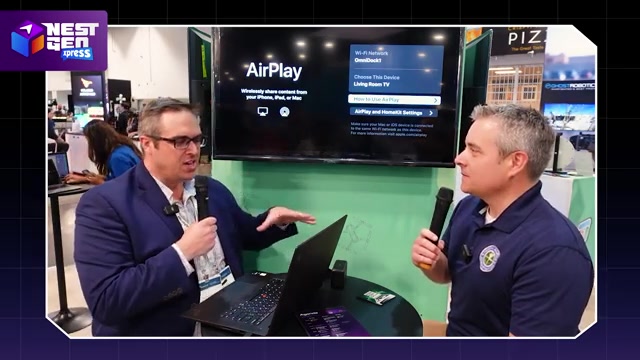
So with drones becoming more autonomous , will we see an increase in rogue sky pirates stealing our Amazon packages and will at least be cooler than the seafaring version .
So if I had a crystal ball , that might be a bit , I'll tell me .
But one of the things you do when you get hired at the FAA , they take away your crystal ball .
So I certainly can't forecast .
Are there going to be issues with , uh I don't want to say air piracy because that means something very , very different the FAA but let's just term it security .
How do , how do we keep everything secure ?
And that's definitely some of the things that we're looking at .
So you look at some of the work that the FAA has done .
Not only just in terms of the technological aspects , we have remote ID , which I know we're going to talk about that's coming up here very shortly .
But we also do a lot of work with our local law enforcement agencies .
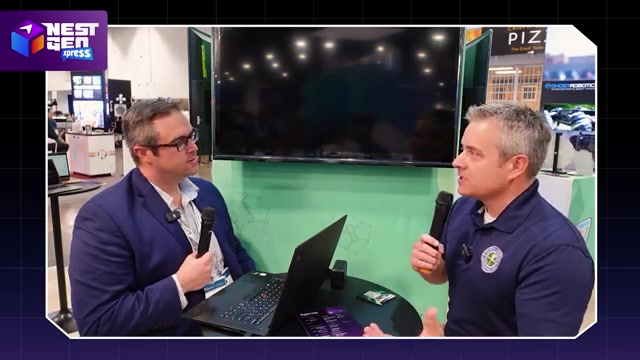
We fully recognize that the , that we don't have a safety inspector standing on every driveway monitoring everything that's happening , you know , just like law enforcement can't help a police officer in every quarter .
But with working with our law enforcement partners through our law enforcement assistance program , we have established a very solid line of communication with those agencies so that we can deal with these instances of illegal drone operations .
What do we want the police to do if there's an illegal drone operation ?
How do police want us to help them investigate that ?
So all this type of communication goes on to maybe perhaps stop the pirate in the sky if you will , stealing your hands out .
Yeah .
Uh but that , you know , safety and security is something that's always at the forefront of everything that we do .
Absolutely .
No , I , I couldn't agree that more .
So , I'm also an FAA safety team , drone pro and we go around and we , we , we love extolling the virtues of everything that's happening within the drone industry from the FA perspective .
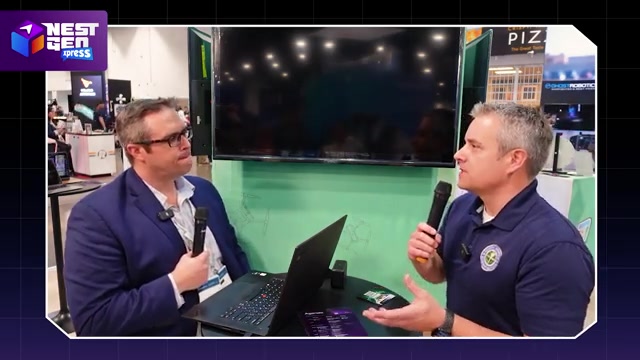
So absolutely , that I'm also just love working with the FA it's a lot of fun .
So question number two .
So some critics , there may be some critics here at this conference , maybe not here .
There's no critics of the FA here .
Um Weird crystal ball question .
So they've argued that the current regulatory framework is too rigid and inflexible to keep pace with the rapid development of drone or box solutions BV loss and some of the more innovative out there technology that is becoming more to the forefront of this industry .
How do you respond to this criticism ?
Sure , I think it's a fair criticism to say that as a regulatory agency , it's challenging for us to keep up with the pace of innovation that we see in the drone world .
We are an agency that's built on traditional aircraft and you do not see that type of evolution of traditional aircraft .
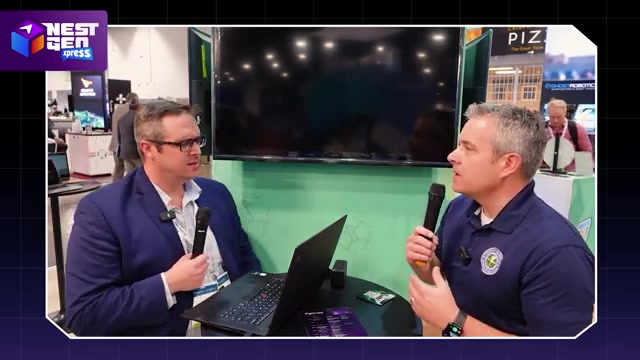
And at the pace you see in drones , I mean here we are at A is exponential .
You've probably been a few times .
I've been a few times .
Just what you see on the floor here is nowhere .
What we saw a few years ago .
It's crazy .
So the challenge to us and it's a fair criticism in that it's a challenge for the fa to keep up .
One of the things I think that you see we do a lot more of now is collaboration with the industry , isn't it ?
Folks like yourself with our drill pro program ?
And not only that , but when we look at regulation .
So for example , loss , that's the big topic of conversation lately .
What are we going to get beyond visualized site operations ?
We formed that loss .
Aviation Rule making committee not to long ago , which is a huge partnership between the FAA and the industry to come up with .
OK , how do we all see this working ?
And then we put that into a final report which was issued just about a year ago and we take that into consideration when we start the rule making process .
Now , I'm not saying we've started rule making process .
You can't quote me on that .
I like my job .
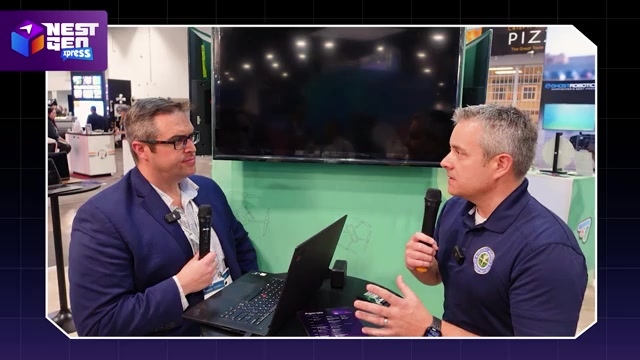
I do want to work tomorrow morning .
But when we do any rule making , we base that off of a lot of aviation rule making committees , which is to say we value industry's input .
So they tell us what's not worked .
They tell us how they like to see it work .
And then we look at incorporating that .
It's important to remember when we're talking about keeping up with industry , the United States airspace system , it's the most complex on the entire planet .
It's also the safest on the entire plane .
I was in a panel session the other day and I asked how many people flew here to Denver ?
And you can imagine 70 75% of the people raise their head .
They said how many were afraid that they wouldn't make it ?
And nobody raised their hand .
Well , there was one guy next week because his flight was delayed , but that didn't really count but nobody raised their head .
That's a testament to that legacy of how things work .
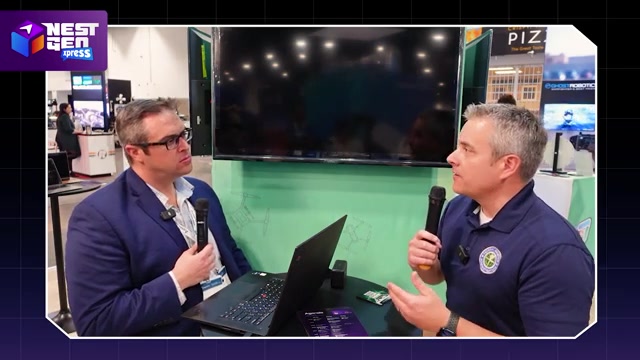
The reason you hop on an airplane and the only thing you're really concerned about is what movies they have to show is because of the collaboration between industry and the fa to make it safe .
So when we look at drones , what they're capable of doing , we want to enable that type of operation .
We realize going back to loss part 107 prohibits it unless you have a waiver , that's not a scalable , repeatable way too far , right ?
So we , we , we get that piece of it .
So the trick is making it work in that complex airspace system that we have .
I think it's all fair and thank you for responding to the criticism that way .
It , I think they , that they don't completely realize that everyone , all the listeners , they don't quite realize just how much of a challenge it really is here in the US National Air Space System .
So going outside of the US just for a second .
So how does the fa work with other International Aviation Regulatory bodies to ensure that ?
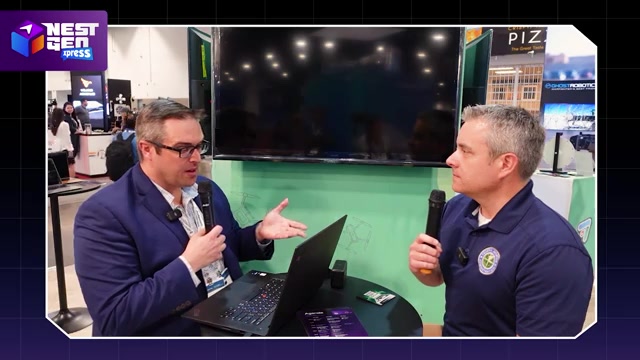
And I would like your thoughts on this to ensure that there is a consistent and standardized approach to regulate , to regulating specifically ge to block solution BB loss aircraft and other autonomous aircraft .
Right ?
So this almost holds back to some of the criticism we hear , right , you hear of operations in Africa , Rwanda , zip line , things like that , that are doing this and people look and say , well , why are we doing this ?
We should be doing this here and we agree we should be doing this here .
But the challenge is significantly different for a lot of different reasons .
Part of that challenge we feel we can overcome by regularly meeting with other regulators from Europe , from Asia Africa , even to our neighbors , to the north of Canada , South and Mexico to make sure that relatively speaking , because again , we're all a little bit different in how we manage our air space , how we can do this together .
So that something that is authorized , let's say to operate in Europe would have to follow a very similar process to be authorized to operate here in the United States .
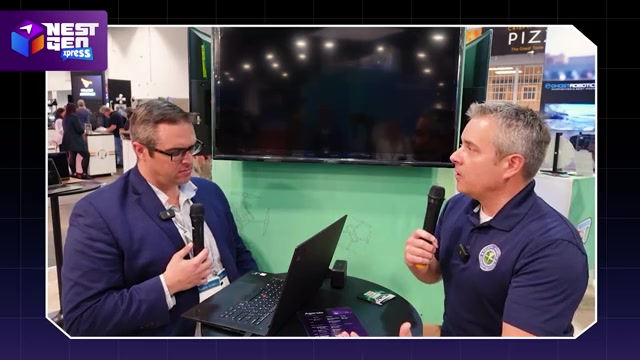
I can show you that it's worked in the past , we have foreign air carriers that fly into the US all the time , the safety standards that they have to maintain are the same as the safety standards that we expect our carriers to maintain .
So when they're flying into our country , that's a result of that collaboration with our international partners to make sure that not only are you comfortable with us coming into your country with our aircraft based on our safety standard , but you could come into our country based on yours and we're going to follow that same process , more or less for drones to make sure that what you're capable of doing here , whether it's a drone in the box or whether something is happening in Rwanda , for example , with drones that will scale to Europe , it can scale to Canada , it can scale the U .
And as you can imagine , it takes a lot of work , a lot of meetings and a lot of talking , but it's something that the fa has excelled at in the past and I would expect us to get to do so a serious question .
Um So with drones , obviously , I mean , this is a massive conference .
We , we're here with 8000 of our friends here .
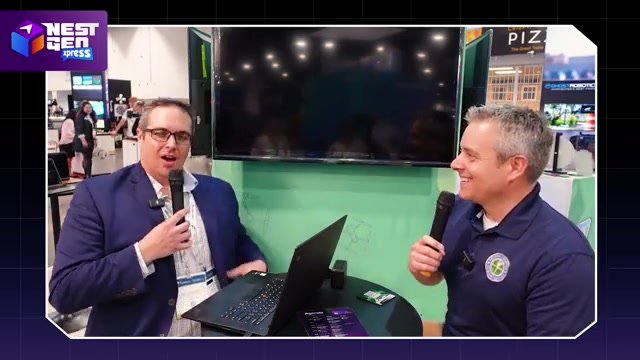
And so this is gonna be a lot of fun um with , 00 there , we almost lost my question .
Good thing I memorized interviews over stay here .
There is a very important question that everyone wants to know .
So will we see an increase in aerial paparazzi hovering outside of our windows ?
Especially , especially mine , obviously .
And can we train our cats to take them down ?
I would start with the second half of your question .
But can you ever train a cat to do anything ?
I suppose ?
I think it's pretty highly debatable .
I don't know .
I've had cats , they train you .
I think that's how they work out .
But to the first part of your question , who really were getting in news ?
Privacy ?
Right .
Yeah .
How are we going to manage privacy ?
I , from the Faa's perspective , privacy is not something we're charged with enforcement , right ?
So we're here for the certification , the regulation , the safety efficiency of the airspace .
But again , that goes down to a public perception thing as well .
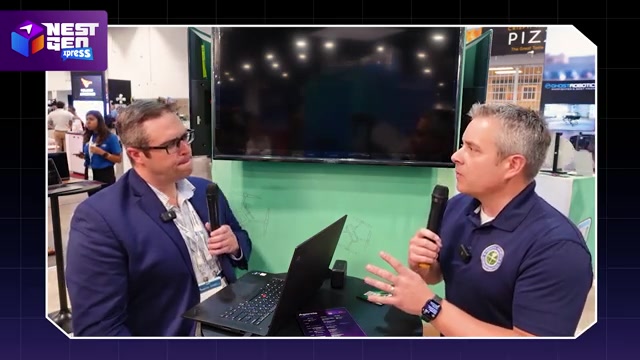
I was talking to somebody the other day , I believe it might have been from drawn up .
But we're talking about the perception of drones are for a lot of folks still , they're flying above my backyard .
They're spying on me .
They're looking at my window type of thing right .
Up until the point where they order something online and it's dropped off in their driveway in 10 minutes .
Then drones become the greatest thing since sliced bread .
So how do we , how do we bridge that gap ?
Right .
How do we give people very , very comfortable with drones ?
So they stop seeing it as a wisest thing flying to ?
Oh , hey , cool .
Look an airplane , right ?
That's , that's the challenge .
So what we do in terms of working with dr pros like yourself who belong to the community to try to help educate folks that you know what these are evil devices , these are devices that are changing the future of aviation .
And it's really , really exciting .
I made a comparison the other day .
I love the show Hamilton , the Broadway show , Hamilton .
Fantastic Show .
One of the songs talked about how lucky we are to be alive right now .
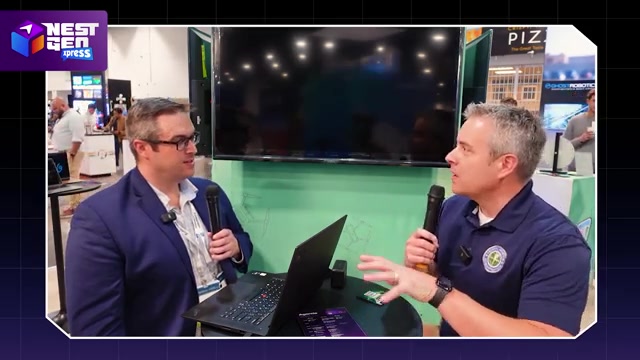
I feel the same way with drones and how lucky we are to be alive at a time right now where we're seeing the advent of a completely new era of aviation that we all collectively will shape .
It's pretty exciting .
So remind me a song Aladdin .
See it is carry of you didn't even know we were going to do that .
Ok .
So it's a final question and this is on the topic of challenges .
So what do you see as the biggest challenge facing the FAA in terms of regulating autonomous aircraft ?
And how do you plan to address these challenges in years to come ?
Right .
So one of the things I let people know is despite what folks might think , we don't wake up in the morning dreaming of new rules to make .
That's not what motivates us .
That's not , that's not what gets me up in the morning .
It doesn't keep me up at night .
In fact , most people I've talked to that have been involved with rule making are like , it's , it's a process avoid it .
Don't try , don't get pulled into the team , right ?
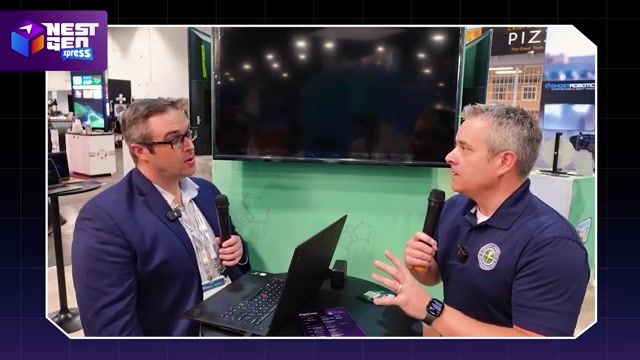
Uh But there we have really brilliant , intelligent people at the fa that work on rule making and things like that .
So what , what , what I think of is , is one of the challenges is how do we enable what we're seeing without overburdening with regulations ?
And one of the key components of that is the collaborative safety effort .
So somebody had asked me earlier at the conference , what's the , what's my dream aspiration for what we see in the community ?
My answer to that was a safety culture .
So you look at traditional aircraft , traditional aviation has been around over 100 years now .
At this point , there is a safety culture and that's woven into everything every pilot does from the pilot who's got his own airplane on his farm to the commercial airline pilot that brought most people here that that safety culture is woven in .
So my challenge seems to be how do we embed that safety culture into the drone community here ?
We have a lot of brilliant people in industry flying drones and they're very interested in the safety because they get it .
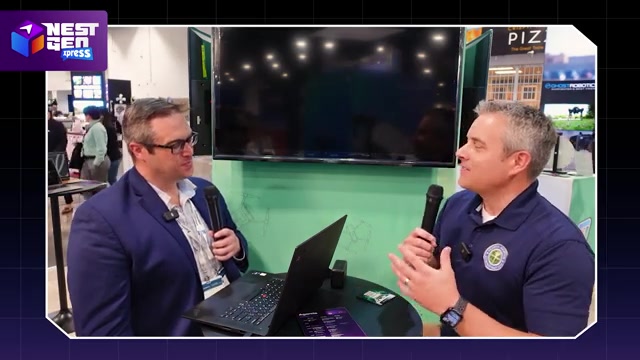
They understand if we don't do this safely , it's never going to go anywhere because unsafe acts require more regulation , right ?
We see that .
So how do we reach the unreachable ?
How do we find people that maybe don't know that this podcast exists or that the fa has social media channels or even a website for that matter .
So the challenge is reaching out to those pockets of the community , establishing relationships with folks like yourself to help carry that safety message and build that safety culture .
That is ridiculous .
Safe war .
And then I do see that as a challenge , right ?
I mean , you have people now that are that they will go online .
I mean , there's over 300,000 commercial drone pilots .
Safety isn't really part of the test .
Not really , not at the , not at the level where it needs to be .
But even if so passing a safety question test , going to Best Buy or Costco and getting a drone and registering it for $5 .
Does it make you a drone pro ?
Does it make you a safety professional ?
And so I would argue that you're absolutely correct .
That is a huge challenge .
How do we make that a reality ?
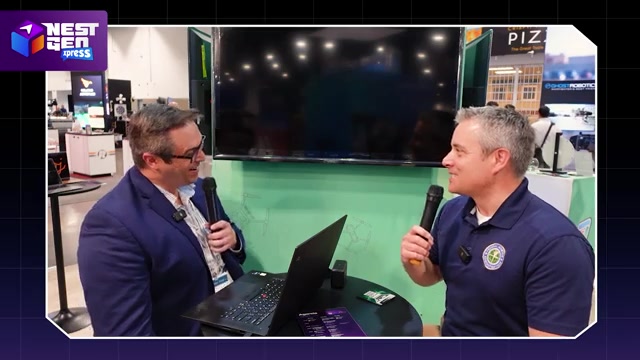
So , Kevin , thank you so so much for being on the show today .
This has been a true pleasure .
Pleasure is all mine .
This has been a great conversation .
I think it's been different .
I love it .
So this has been a highlight of my day .
More fantastic .
Well , you hear , hear folks they wake up every morning trying to think of new rules .
Not true .
That's not true .
They do believe that they do believe that cats can be used to potentially take down drones .
But they're also they can , they're training us .
So , thank you so much for joining us as Gen Express and we will catch you on the next episode .
Bye now .
Are you looking for a way to reach a wider audience and get more views on your videos?
Our innovative video to text transcribing service can help you do just that.
We provide accurate transcriptions of your videos along with visual content that will help you attract new viewers and keep them engaged. Plus, our data analytics and ad campaign tools can help you monetize your content and maximize your revenue.
Let's partner up and take your video content to the next level!
Contact us today to learn more.